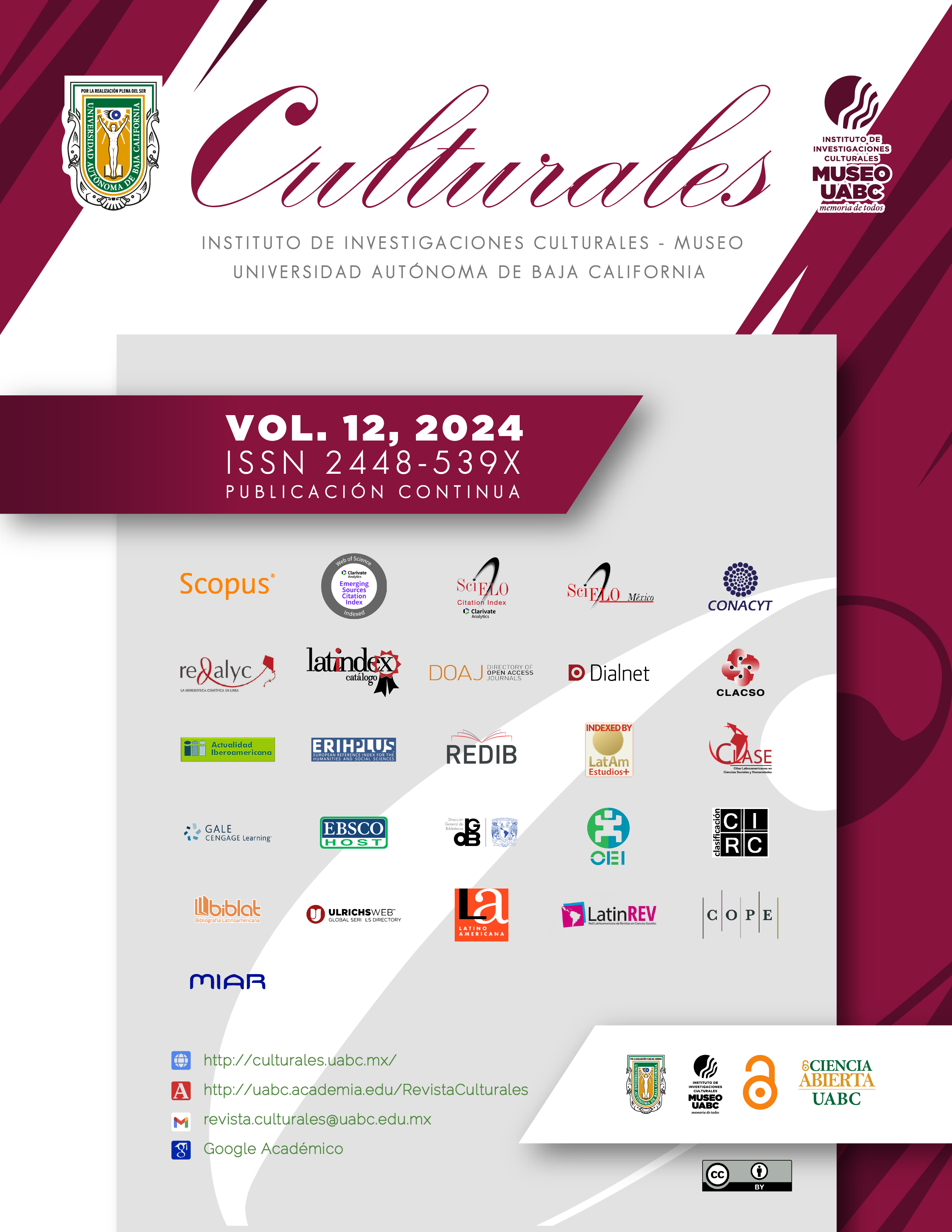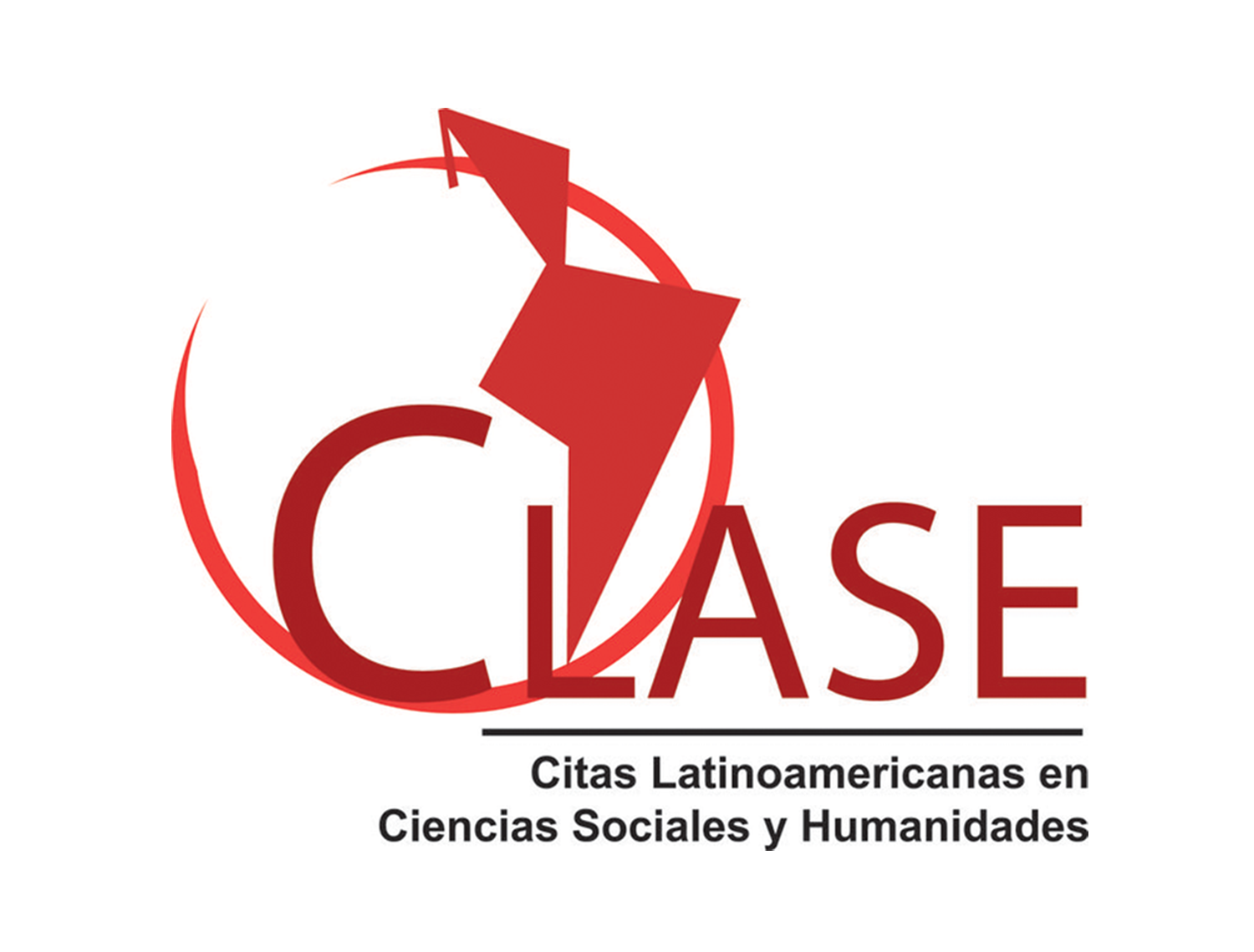Ways of Departing: First German Candidates to the Congregation Catechists of Boroa (Araucania, Chile, 1932-1934)
DOI:
https://doi.org/10.22234/recu.20241201.e853Palabras clave:
Travel, discourse, religion, women, writingResumen
This work analyzes the discursive strategies of the first German candidates who, between 1932 and 1934, applied to be missionaries of the Catechist Congregation of Boroa in the Araucanía Region. From a gender perspective and through the systematization and cross-referencing of historical archives (calls, letters, autobiographies, questionnaires), we will analyze the encoded interaction between Capuchin priests and candidates. Focusing on the analysis of the candidates letters, we will argue that exceptionalism and the tricks of the weak constituted paradoxical strategies of women whose desires for recognition and autonomy were legitimized through the civilizing vocation of Mapuche pagans.
Descargas
Citas
Ahmed, S. (2017). La política afectiva del miedo. In La política cultural de las emociones (pp. 105-132). Universidad Nacional Autónoma de México.
Azócar, A. (2014). Así son… así somos. Discurso fotográfico de capuchinos y salesianos en la Araucanía y la Patagonia. Ediciones Universidad de la Frontera.
De la Fuente, P. (2023). Ñimin y escritura: encuentros y desencuentros entre niñas y mujeres mapuche con misioneras anglicanas en la Misión araucana de SAMS (1895-1929) Pontificia Universidad Católica de Chile. Santiago.
Donoso, A. (2008). Educación y nación al sur de la frontera: organizaciones mapuche en el umbral de nuestra contemporaneidad, 1880-1930. Pehuén, RIL.
Dorlin, E. (2003). Les putes sont des hommes comme les autres. Raisons Politiques, 3(11), 117-132.
Egaña, L.; Nuñez, I. & Salinas, C. (2003). La educación primaria en Chile, 1860-1930 : una aventura de niñas y maestras. LOM.
Haggis, J. (1998). ’A heart that has felt the love of god and longs for others to know it’: conventions of gender, tensions of self and constructions of difference in offering to be a lady missionary. Women’s History Review, 7(2), 171-193.
Illanes, M. (2007). Cuerpo y sangre de la política La construcción histórica de las visitadoras sociales (1887-1940). LOM.
Lavrin, A. (1995). Women, Feminism and Social Change in Argentina, Chile and Uruguay 1890-1940. University of Nebraska Press.
Ludmer, J. (1985). Tretas del débil. In P. González & E. Ortega (Eds.), La sartén por el mango. Encuentro de escritoras latinoamericanas (pp. 47-54). Ediciones El Huracán.
McClintock, A. (1993). Family feuds: gender, nationalism and the family. Feminist Review, 44, 61-80.
Menard, A. & Pavez, J. (2007). Mapuches y anglicanos. Vestigios fotográficos de la Misión Araucana de Kepe, 1896-1908. Ocho libros.
Montecino, S. & Foerster, R. (1988). Organizaciones, Lideres y Contiendas Mapuches (1900-1970). CEM.
Noggler, A. (1972). Cuatrocientos años de Misión entre los Araucanos. Editorial San Francisco.
Riot-Sarcey, M. & Varikas, E. (1988). Réflexions sur la notion d’exceptionnalité. Les Cahiers Du GRIF, 37-38, 77-89.
Rivière, J. (1929). Womanliness as a mascarade. International Journal of Psychoanalysis, X, 303-313.
Rojo, G. (2001). Diez tesis sobre la crítica. LOM.
Rosa, E. (1996). Sor Juana and Gabriela Mistral: Locations and Locutions of the Saintly Woman. Chasqui, 25(2), 89-103.
Semple, R. (2003). Missionary women : gender, professionalism, and the Victorian idea of Christian mission. Boydell Press.
Scott, J. (2012). Las mujeres y los derechos del hombre : feminismo y sufragio en Francia, 1789-1944. Siglo Veintiuno Editores.
Serrano, S. (1995). De escuelas indígenas sin pueblos a pueblos sin escuelas indígenas: la educación en la Araucanía en el siglo XIX. Historia, 29, 423-474.
Serrano, S., Ponce de León, M., & Rengifo, F. (2018). Historia de la Educación en Chile, Tomo II: La Educación nacional (1880-1930). Taurus.
Stoler, A. (2004). Affective States. In D. Nugent & J. Vincent (Eds.), A Companion to the Anthropology of Politics (pp. 4-20). Blackwell Publishing.
Stornig, K. (2013). Sisters Crossing Boundaries: German Missionary Nuns in Colonial Togo and New Guinea, 1897-1960. Vandenhoeck & Ruprecht.
Umbach, J. (2017). Missionarische Weiblichkeit und Identitätskonstruktion. Die Chile-Mission der Menzinger Kreuzschwestern im frühen 20. Jahrhundert. Peter Lang Edition.
Vera, A. (2016). La superioridad moral de la mujer: sobre la norma racializada de la femineidad en Chile. Historia y Política, 36, 211-240.
Vera, A. & Sáez, C. (2022). Animales monstruosos y viriles: una lectura feminista del archivo de la repugnancia a las cobradoras de tranvía (Santiago, fines XIX-comienzos XX). Cadernos Pagu, 65. https://www.scielo.br/j/cpa/a/QYVzC7rJ7gf347cYd4zYL6k/
Vera, A. & Valderrama-Cayumán, A. (2017). Teología feminista en Chile: actores, prácticas, discursos políticos. Cadernos Pagu, 50. https://doi.org/https://doi.org/10.1590/18094449201700500012
Yeager, G. (2005). Religion, Gender Ideology, and the Training of Female Public Elementary School Teachers in Nineteenth Century Chile. The Americas, 62(2), 209-243.
Yuval-Davis, N. & Anthias, F. (1989). Women-Nation-State. Macmillan.
Archives
Historical Archive of the Diocese of Villarrica (AHDV).
File “First candidates to the Catechists of Boroa 1932-1934”
Sister Superior Engelmann. (1932, August 19). Kempten. AHDV.
Sister Superior Leonarda Welsh, Sisters of the Good Shepherd. (1932, August 16). Münich. AHDV
Father Räglau. (1933, September 3). Parish of Baden-Baden. AHDV.
Pastor K. Arnow. (1932, September 10). Reichenbach. AHDV.
Parish office of Saarbrücken. (1932, June 21). AHDV.
Father Caedilian. (1933, June 24). Burghausen. AHDV.
Letter from Father Eduard to Guido Beck. (1932, August 12). AHDV.
Letter from Guido Beck to Father Eduard. (1932, September 29). AHDV.
Letter from Father Eduard to “his Reverence”. (1934, July 20). AHDV.
Lina Koch. (1933, September 10). Baden-Baden. AHDV.
Elisabeth Schneider. (1932, June 14). Saarbrücken. AHDV.
Maria Renninger. (1933, June 28). Mabmberg. AHDV.
Gisela Eckstein. (1933, June 14). Mammersreuth. AHDV.
Father Johannes. (1932, August 23). Cleve. AHDV.
Father Feuerbach. (1932, August 29). Parish office of Mainz. AHDV.
Letter from Father Eduard to ‘His Excellency’. (1933, May 4). Altötting. AHDV.
Letter from Father Eduard to Guido Beck. (1934, August 20). AHDV.
Father Suitbertus to Father Eduard. (1933, September 28). Mainz. AHDV.
Letter from Klara Mergler to ‘His Excellency’. (1934, August 5). Gernsheim. AHDV.
Margareta Maier. (1934, July 29). Bamberg. AHDV.
Maria Renninger. (1933, June 28). Mabmberg. AHDV.
Franziska Schmid. (1932, December 29). Öettingen. AHDV.
Ottilie Winter Maier. (1934, September 14). Untermühlbach. AHDV.
Archive of the Mother House of the Catechist Sisters of Boroa (ACB).
“Date of birth and religious profession of the missionary catechist sisters”. (n.d.). ACB.
Ewige Anbetung and Altöttinger Franziskus Kalender magazines, Library of the university of Eichstätt-Ingolstadt.
Descargas
Publicado
Cómo citar
Número
Sección
Licencia
Derechos de autor 2024 María Antonieta Vera Gajardo, Camila Stipo, Rosario Fernández Ossandón

Esta obra está bajo una licencia internacional Creative Commons Atribución 4.0.
Culturales permite compartir, copiar y redistribuir el material en cualquier medio o formato; adaptar, remezclar, transformar y crear a partir del material para cualquier propósito, incluso comercialmente, dando crédito a la obra de manera adecuada y proporcionando un enlace a la licencia indicando si se han realizado cambios.
Culturales se encuentra bajo la Licencia Creative Commons Atribución 4.0 Internacional (CC BY 4.0)














